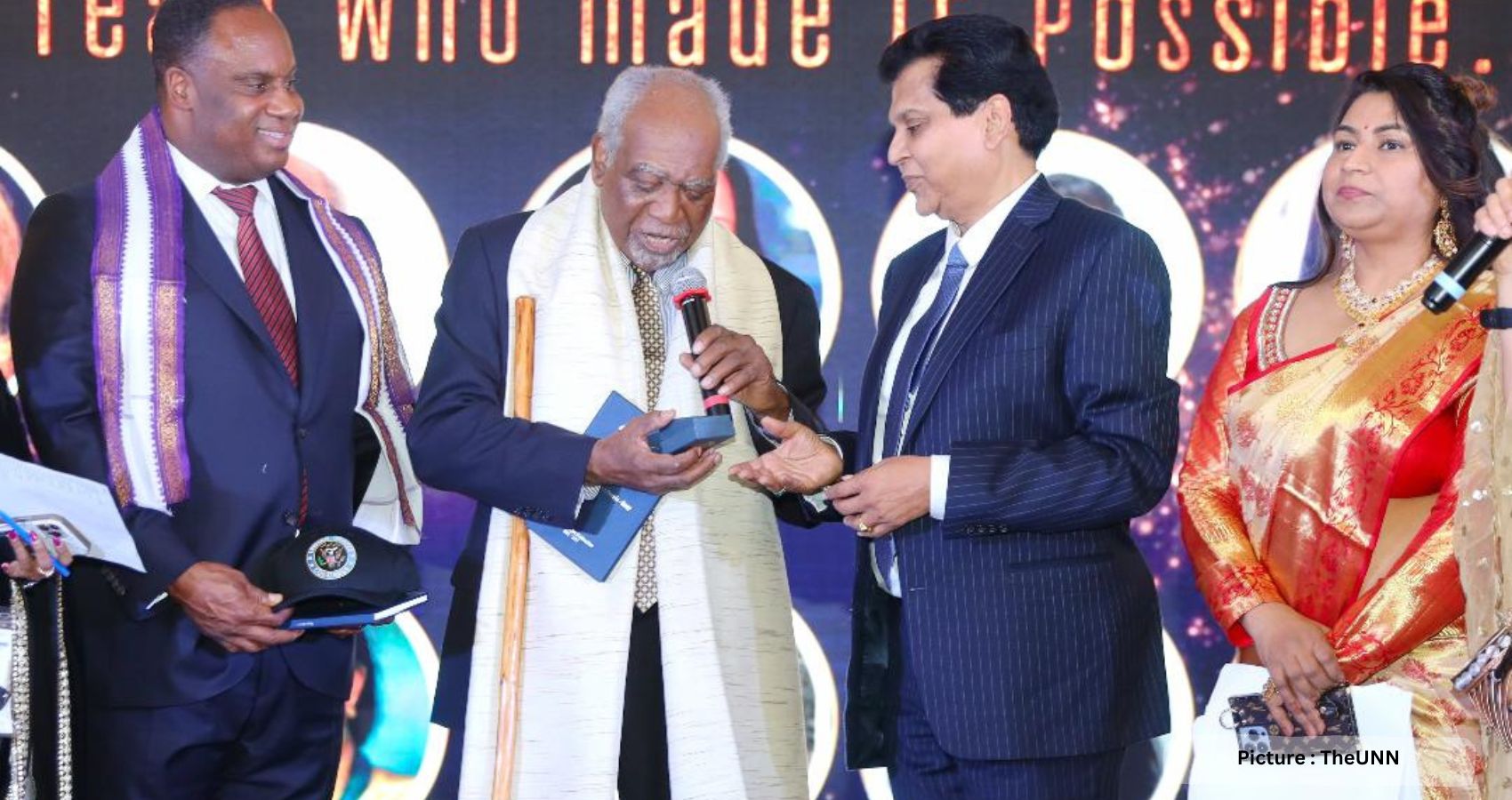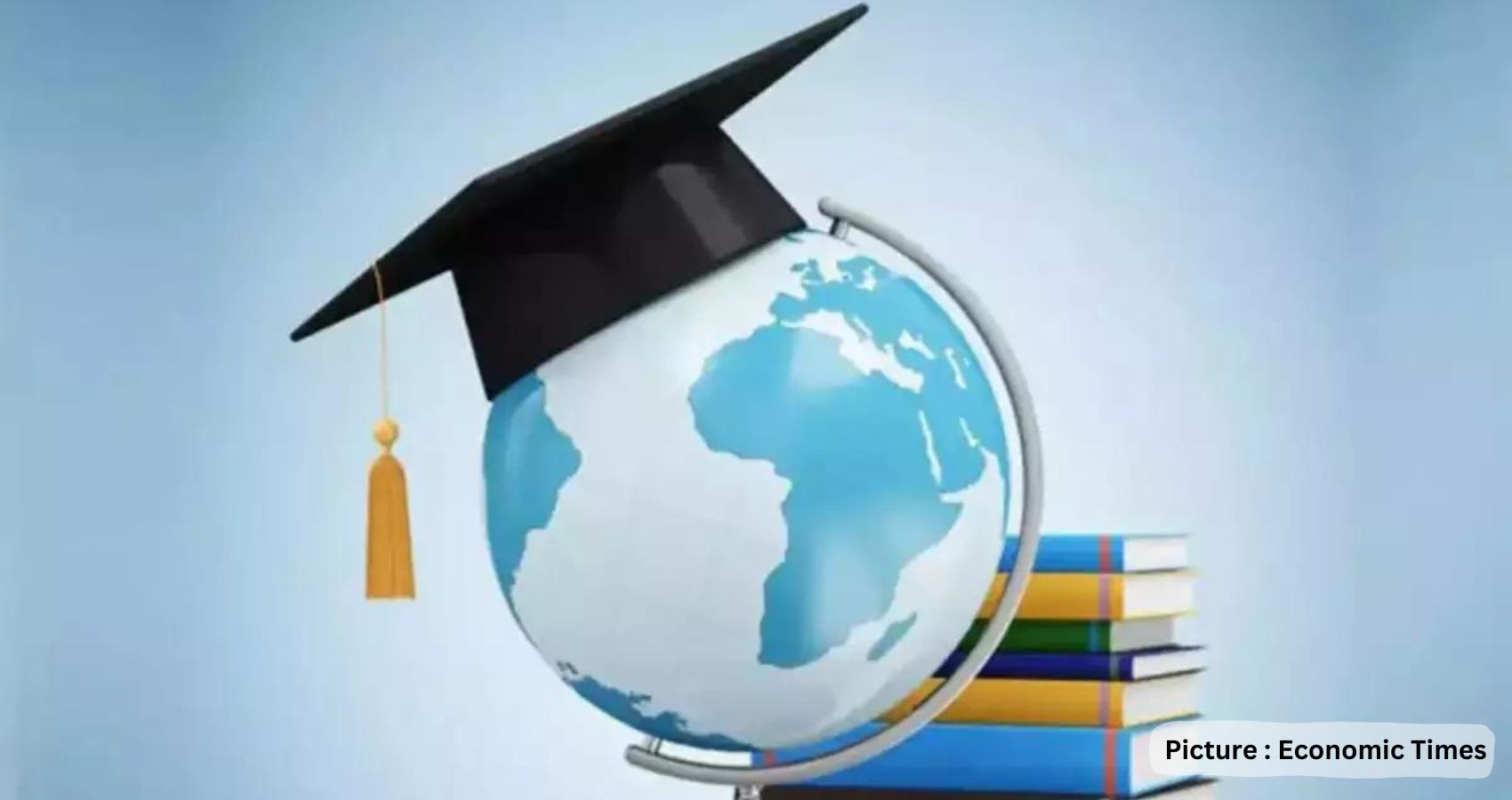Chicago, IL: February 11, 2023 The Global Strategic Alliance G.S.A. India @75 Expo USA announced the Pride of India awards being presented to 75 outstanding Indians from different walks of life for their impactful work to celebrate Azadi Ka Amrit Mahotsav. An initiative of Indian diaspora from Chicago, U.S.A.
Vikash Kumar Vikash, IPS, Inspector General Of Police and Managing Director of Mysore Sales International Ltd, MSIL, Bangalore was named as one of the 75 Pride of India awardees for his dynamic leadership in MSIL’s outstanding growth postcovid particularly in promoting the use of renewable energy and aggressive marketing which made MSIL successfully venture into the tourism and hospitality sector which reaped profits.
Pejavar Murari, IAS (Retd), Adviser to the President of Federation of Indian Chamber of Commerce & Industries, FICCI, New Delhi, India was also awarded in recognition of his distinguished career in the Indian Administrative Service including being the former Secretary to President of India, R. Venkataraman. The citation recalled Murari’s entrepreneurial leadership including being the current Chairman of ABAN Offshore Ltd, Chairman, Advisory Board Lochan & Company and Chairman, Lepra India Trust, New Delhi. Murari also serves as the Director of Bajaj Auto, Xpro India, Idea Cellular and Fortis Mallar. Murari is also on the Governing Council of Loyola Institute of Business Administration, LIBA Chennai and the Business Advisory Council of Great Lakes Institute of Management.
Ms. Seeta Bala, G.S.A. Awards Jury Chair announced the other Pride of India awards including 17year old Aryan Lakshmanan, Grade 11 Student, L’école Chempaka School, Thiruvananthapuram, Kerala, Praful Billore, CEO, MBA Chaiwala, Indore, India, Dr. Chitti R. Moorthy, Radiation Oncologist, Westchester, New York, Madhu Uppal, Community Activist, Naperville, Illinois, Dr. Paul Dhinakaran, Chancellor, Karunya University, Coimbatore, India, Cottalango Leon, 2016 Academy Award Winner, Scientific & Tech Achievement in Animation, Los Angeles, Rajkumar Rajappa, Chairman, President NHEL Small Scale Industries Association, Trichy, Tamil Nadu, Ms. Geeta Radhakrishnan, CPA, New York, Dr. Sambhu Banik, Eminent Clinical Psychologist & Former Member, Presidential Commission on Persons with Intellectual Disabilities, Washington D.C., USA, Sukhpal Singh Dhanoa, White House Correspondent & Bureau Chief PTC News, Washington, D.C., Ms. Rajeswari Rajagopal, Kids Education Counselor, Surakhsha Bhuja Foundation, Chennai, Tamil- Nadu, Ravi Karkara, Global Champion of Sustainability, New York, Tenkasi ‘s Ananthan Ayyasamy, State Vice President, Tamil Nadu BJP Party, Padmashri S.V. Rama Rao, eminent Artiste & Educationalist, Palos Hills, Illinois, Simarpreet Singh, CEO, Hartek Solar, New Delhi, Manav Subodh, Founder- Global Ambassador UC Berkeley & Founder 1M1B, New Delhi, Usha Boddapu, CEO/Founder, Esolvit, Austin, Texas, Padmanabhan Venkatesan, Treasurer, World Federation of Tamil Youth, Phoenix, Arizona, 25 year old Ulhas Satyanarayan, Member, India’s Basketball Team, New Delhi, & First Indian to play in European Professional Basketball League, Moldovia, Sushil Mitruka, Chairman and Managing Director of Kusum Udyog Ltd & Group of Industries, Siliguri, India, Shweta Baid, First Indian Alderwoman of Aurora City, IL, Thirumala Kumbum, CEO, Value Financial Services, Texas and Dr. Mohammed Jameel, Member Illinois Physician Disciplinary Board, Springfield, IL among others.
Dr. Vijay G Prabhakar, President, GSA India@75 Expo USA said that this epic one of kind Expo brought together ANCIENT INDIA and NEW INDIA on a single platform that included a vibrant tradeshow, meaningful daily workshops, informative plenary sessions on India’s growth, interactive sessions on Yoga, Meditation, & Ayurveda and a rich cultural extravaganza of India’s dance and music.
Dr. Ajit Pant, Chairman, GSA India@75 Expo USA said that the three day Expo held from December 15 to 17, 2022 at Lisle, Naperville was the most impactful event of 2022. Dr Pant added that the Expo Sequel will be held in six major cities including New York, Atlanta, Houston, Miami, San Francisco and Washington D.C. throughout 2023.
Shree Gurusamy, CEO GSA India@75 Expo USA that the theme is Made in India Made for the World and that the showcasing of India will continue through Amrit Kaal, the next 25 years.
26 year old Sailesh Singh, Founder of Youth 2047, Siliguri India declared that GSA India@100 Expo will be celebrated in 2047 in the U.S.A and India. Dr. Vasavi Chakka, Dean of the Global Eye International Institute of Leadership, New York announced that short term Leadership Training Programs to focus on U.S.A – India relationships in six sectors starting from June 2023 will be conducted to create tomorrow’s inclusive leaders today. This will be an excellent opportunity for both Indians and Indian diaspora throughout the world to interact with the U.S. Congressional leadership and network with experts in the different sectors, added Dr Chakka.
Seeta Bala, G.S.A. India Expo Awards Jury Chair said that the Pride of India Awardees will be given annually to outstanding Indians including the Indian diaspora under different categories in recognition of their inclusive leadership to empower our Community. Seeta Bala added that the impactful G.S.A. India @75 Expo is hosting Sequels across North America, Europe, Africa, Latin America and Australia Continents throughout Amrit Kaal.
Nominations for 2023 G.S.A Pride of India Awards can be emailed to [email protected] on or before April 22, 2023.



